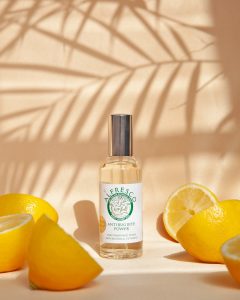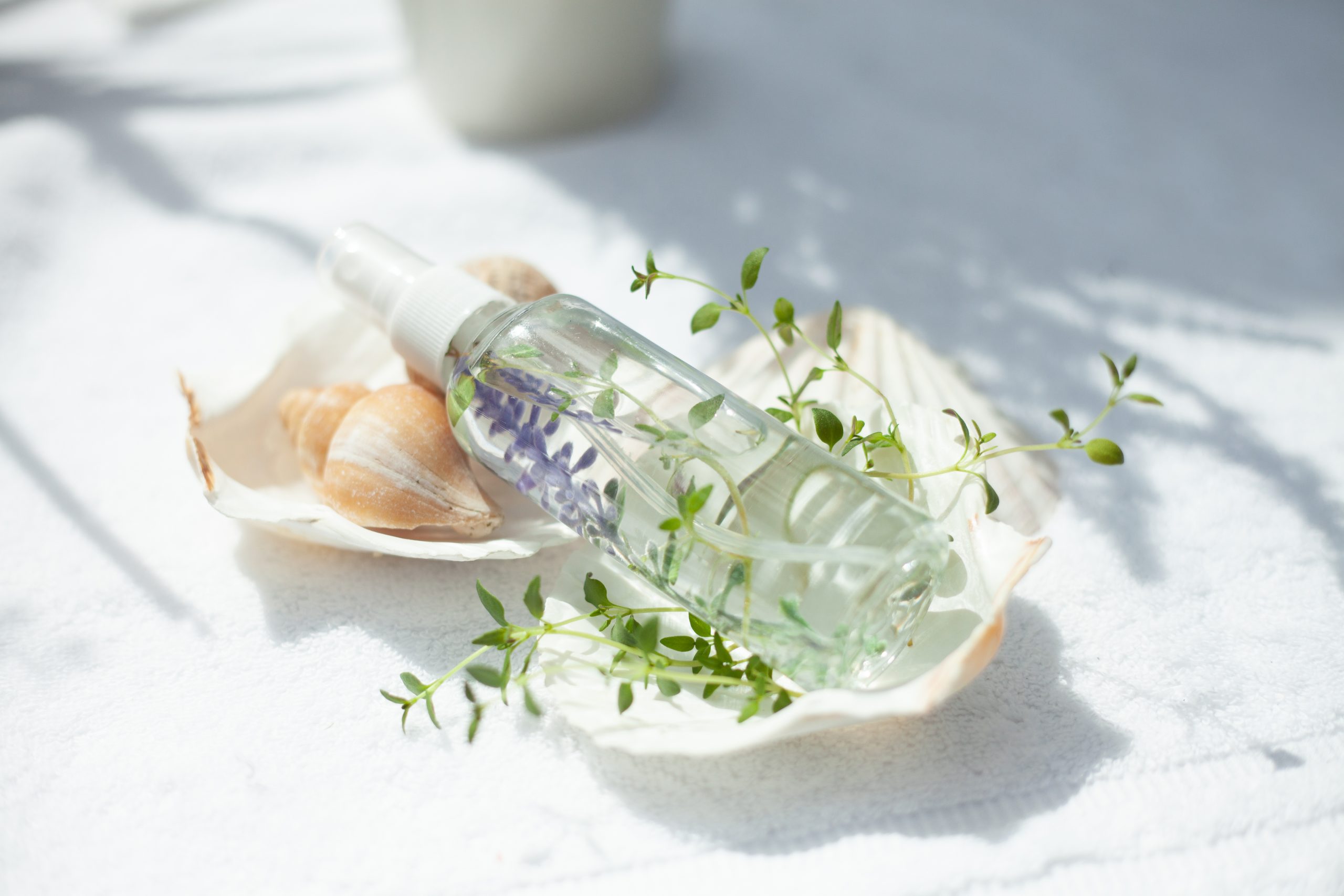Lifestyle
Natural insect repellents and hacks
Looking for natural insect repellents? Our guide here can be a good place to start before you reach for chemical-packed alternatives.
Whether it’s wasps in your drinks or ants in your picnic, pesky pests are a particular problem in summer. Thankfully, there are many humane and natural ways to repel insects. Read on to discover how to make the most of summer and return to barbecue bliss and picnic peace without the bother of bugs.
Natural insect repellents
Perfumed repellent
 It can be so hard to find an insect repellent that smells nice and does the job. We love the offerings from Al Fresco, which are totally safe and natural too. Not only are they effective, they smell great, ditching the DEET in favour of over 20 sustainably sourced essential oils.
It can be so hard to find an insect repellent that smells nice and does the job. We love the offerings from Al Fresco, which are totally safe and natural too. Not only are they effective, they smell great, ditching the DEET in favour of over 20 sustainably sourced essential oils.
How to repel wasps
Unwelcome summer visitors, wasps can descend in droves at mealtimes when there’s food around, particularly if dining al fresco. These natural insect repellents will help to get rid of wasps in a humane, fuss-free way.
Plant power
There are certain strong plant aromas that wasps can’t stand, like eucalyptus and peppermint. Dab a few drops of these essential oils around your table to keep them at bay. For a more decorative option, place a big bunch of fresh mint or eucalyptus in a vase nearby to act as a beautiful table decoration as well as a natural insect repellent.
Diversion tactics
If you’re out for a picnic lunch, you’re less likely to have a stash of essential oils and fresh eucalyptus and mint to hand. Instead, improvise with a food-based decoy. Entice wasps away from your rug by leaving a little protein and some fruit on a plate a safe distance away.
In early summer, wasps seek out protein-based foods before developing a sweet tooth later on – particularly for juicy, overripe fruit. This will act less as a natural insect repellent and more of a natural insect lure – just well away from your sausage rolls!
How to treat a wasp sting
If you’re unlucky enough to be stung by a wasp, hornet or bee, make sure the sting has been completely removed before treating it.
Some argue that wasp and hornet stings can be relieved by neutralising the venom with a compress of something acidic such as vinegar or lemon juice, and that bee stings can be helped with a strong alkali such as bicarbonate of soda. These homemade remedies may offer some partial relief, but the venoms are hugely complex and can penetrate the tissue around the sting very quickly.
This means applying acid or alkali topically is unlikely to offer a complete treatment. An antihistamine cream should be more effective and will help to prevent any further inflammation.
How to avoid ants
It makes scents…
While ants don’t usually cause too many problems outside, they can be a real nuisance inside the house. One solution to an alarming ant trail is spraying surfaces with a diluted vinegar solution. This helps remove the scent trail that ants rely on, making them find an alternative, vinegar-free route.
Alternatively, try peppermint – a scent that ants also dislike. Try adding this to your vinegar solution as it may make it even more potent. Cinnamon and raw, peeled garlic are also natural ant deterrents so leave some wherever they are coming into the house.
Don’t put your foot in it
Squashing ants is thought to make them release a pheromone that signals the need for help – so avoid this inhumane method as it may in fact make more ants arrive! Sweep them into a dustpan and empty it outside for a better solution.
How to get rid of flies
Herbal remedy
Basil – one of our favourite culinary herbs – can be very effective at keeping flies and mosquitoes from coming indoors. Grow it in pots and place near entrances to your house – such as on window sills and by doors – so that its strong scent acts as a natural insect repellent, and discourages flies from coming too close. Bay leaves can also help here. Try tying springs of fresh or dried bay leaves around your kitchen. This will look pretty, make flies feel less welcome, and mean you have herbs on hand for cooking when you need them!
In the garden
If you often enjoy dining outside in summer but are disturbed by flies, you may want to consider growing some common tansy – a pungent perennial with bright yellow flowers that thrives in both sunny and shady spots if kept well watered during the summer. This natural insect repellent may be a great addition to your garden.
How to manage mosquitoes
Give me oil…
There are some great mosquito repellent plants to protect you from being eaten alive every summer. One of the most effective natural insect repellents is citronella oil, which comes from the leaves of a grass grown chiefly in Asia. You may want to consider burning a citronella candle in the evenings to keep the mosquitoes away.
Healing balm
Lemon balm, a delicious member of the mint family, is also an excellent natural insect repellent, effective on mosquitoes, which grows much more readily in the UK. This hardy plant copes with shade and even drought, so is great to have on hand in the summer. Try keeping it in pots to restrain its growth, as this will also mean that you can move it around the garden to wherever you want to sit on a light evening. Catnip will also deter mosquitoes while keeping your feline friends incredibly content. Alternatively, try marigolds, whose brightly coloured blooms will brighten up any flowerbed as well as keeping bugs at bay. Marigolds contain pyrethrum, which has a toxic effect on many insects and a unique aroma that certain bugs find repulsive.
How to make your own insect repellent
 Studies show that lavender, lemon, eucalyptus and thyme essential oils are effective at preventing pesky mosquito bites. Never apply essential oils directly to the skin, apart from the odd dab of lavender oil. We’ve diluted ours in a lightweight water-based spray, which is easily absorbed. If you have some to hand, you could also use 120ml of a carrier oil such as almond oil instead of the water and witch hazel listed here. Simply add the essential oils and spray on librerally.
Studies show that lavender, lemon, eucalyptus and thyme essential oils are effective at preventing pesky mosquito bites. Never apply essential oils directly to the skin, apart from the odd dab of lavender oil. We’ve diluted ours in a lightweight water-based spray, which is easily absorbed. If you have some to hand, you could also use 120ml of a carrier oil such as almond oil instead of the water and witch hazel listed here. Simply add the essential oils and spray on librerally.
Ingredients
- 60ml water (boiled then cooled)
- 60ml witch hazel
- 1/2 tsp glycerin (for a more hydrating spray, optional)
- 15 drops lavender essential oil
- 15 drops lemon eucalyptus essential oil
- 15 drops thyme essential oil
- Sprig of fresh lavender or thyme (optional)
Equipment
150ml spray bottle and small funnel (optional)
Method
- Add all the ingredients to the spray bottle, secure the lid and shake well before use.
- Use within a week if adding fresh lavender or thyme.
Top tip: It’s important to source good-quality essential oils to ensure you’re getting high concentrations of the bug-fighting active ingredients.





